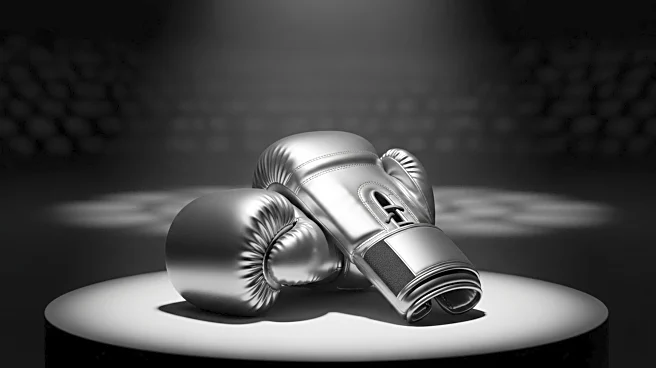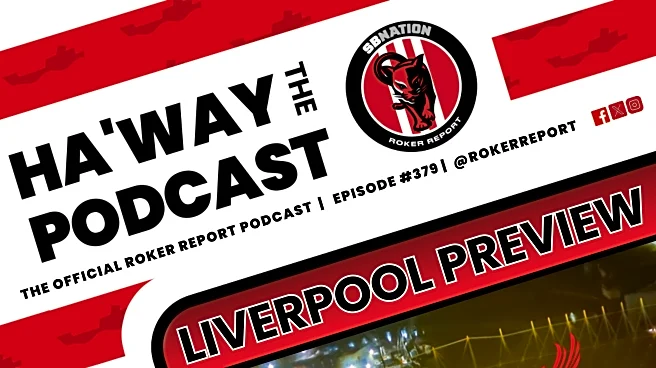What's Happening?
Conor McGregor, a prominent figure in mixed martial arts, has been handed an 18-month suspension by the Combat Sports Anti-Doping (CSAD) agency, which oversees the UFC's anti-doping program. The suspension is due to McGregor's repeated failures to submit required testing samples and his inability to provide accurate whereabouts information to the testing agency. These issues occurred in 2024, leading to the current disciplinary action. The suspension is retroactive to September 2024, allowing McGregor to return to competition in March 2026, aligning with his planned comeback at the UFC White House card. This development marks a significant setback for McGregor, who has not fought in over four years, and has sparked criticism from the MMA community.
Why It's Important?
The suspension of Conor McGregor, one of the most high-profile athletes in MMA, has significant implications for the sport and its stakeholders. McGregor's absence from competition affects the UFC's ability to draw large audiences and generate revenue, given his status as a major draw for fans. Additionally, this incident highlights ongoing challenges in maintaining compliance with anti-doping regulations, which are crucial for the integrity of the sport. The situation also underscores the importance of transparency and accountability among athletes, as failures in these areas can lead to reputational damage and financial losses. The MMA community's reaction reflects concerns about the sport's governance and the need for consistent enforcement of rules.
What's Next?
Conor McGregor's suspension is set to end in March 2026, allowing him to potentially return to the octagon. His comeback is anticipated to coincide with the UFC White House card, which could serve as a major event for the promotion. In the meantime, McGregor may focus on addressing the issues that led to his suspension, including improving his compliance with anti-doping protocols. The UFC and CSAD may also review their procedures to prevent similar incidents in the future. Stakeholders, including fans and sponsors, will be watching closely to see how McGregor navigates this period and whether he can successfully reintegrate into the sport.
Beyond the Headlines
The suspension of Conor McGregor raises broader questions about the ethical and legal dimensions of anti-doping enforcement in sports. It highlights the challenges faced by regulatory bodies in ensuring fair competition and the potential consequences for athletes who fail to adhere to established protocols. This incident may prompt discussions about the effectiveness of current anti-doping measures and the need for more stringent oversight. Additionally, it could lead to a reevaluation of the relationship between high-profile athletes and governing bodies, emphasizing the importance of mutual accountability and trust.










